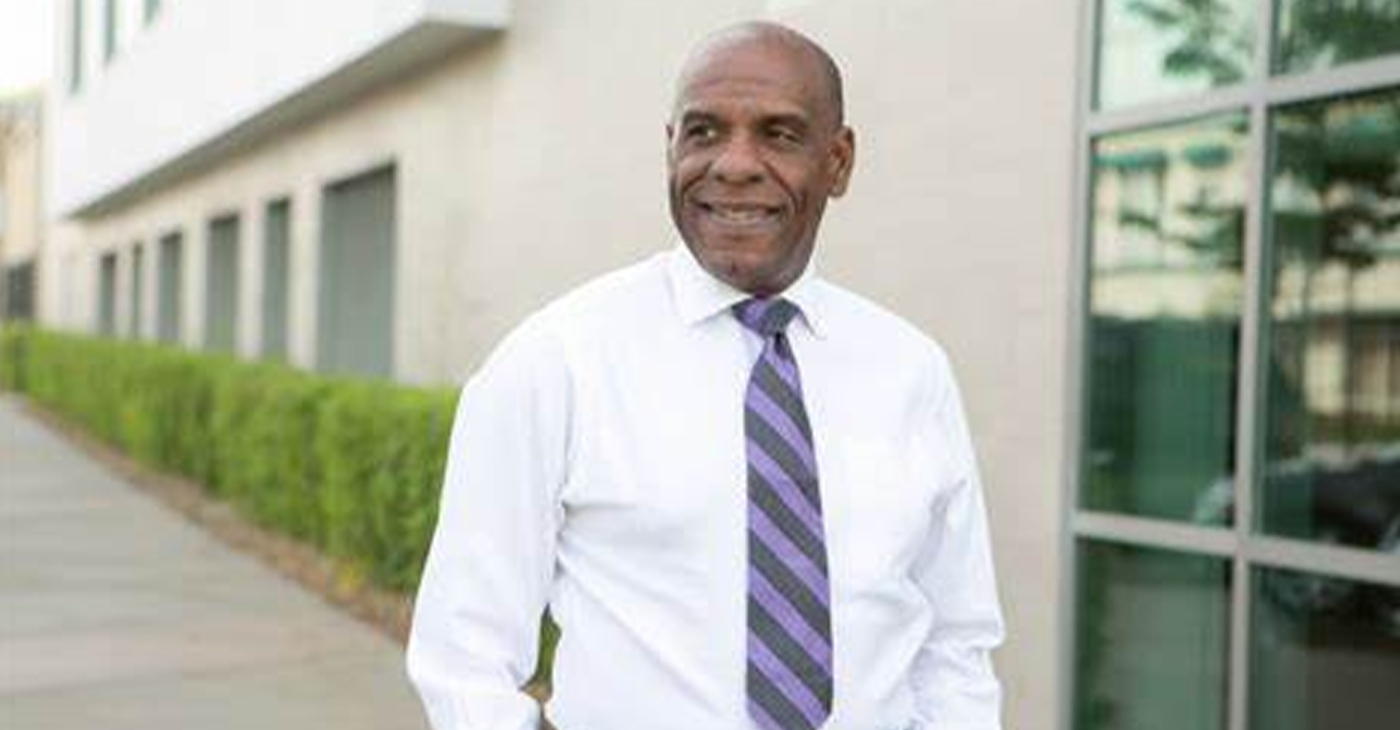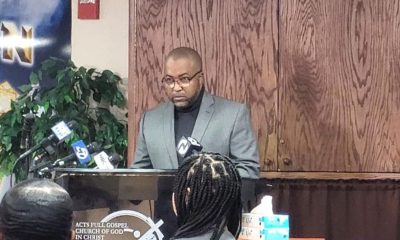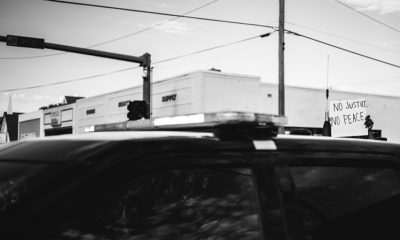Politics
US Appeals Court: NSA Phone Record Collection is Illegal

This June 6, 2013 file photo shows the sign outside the National Security Agency (NSA) campus in Fort Meade, Md. (AP Photo/Patrick Semansky, File)
LARRY NEUMEISTER, Associated Press
KEN DILANIAN, Associated Press
NEW YORK (AP) — The unprecedented and unwarranted bulk collection of the entire U.S. population’s phone records by the government is illegal because it wasn’t authorized by Congress, a federal appeals court said Thursday as it asked legislators to balance national security and privacy interests.
A three-judge panel of the 2nd U.S. Circuit Court of Appeals in Manhattan permitted the National Security Agency program to continue temporarily as it exists, but it all but pleaded for Congress to better define where boundaries exist or risk “invasions of privacy unimaginable in the past.”
The appeals court said if the government is correct in its legal arguments, it could also justify storing in bulk metadata associated with Americans’ financial records, medical records and electronic communications, including email and social media information.
An opinion written by Circuit Judge Gerald Lynch said Congress could “profoundly alter the legal landscape” after debate.
“Congress cannot reasonably be said to have ratified a program of which many members of Congress – and all members of the public – were not aware,” it said.
“The statutes to which the government points have never been interpreted to authorize anything approaching the breadth of the sweeping surveillance at issue here,” the court said. “The sheer volume of information sought is staggering.”
A lower court judge in December tossed out an American Civil Liberties Union lawsuit, saying the program was a necessary extension to security measures taken after the Sept. 11, 2001, terrorist attacks.
The NSA’s collection and storage of U.S. landline calling records — times, dates and numbers but not content of the calls — was the most controversial program among many disclosed in 2013 by former NSA systems administrator Edward Snowden. Some NSA officials opposed the program, and independent evaluations have found it of limited value as a counterterrorism tool. Snowden remains exiled in Russia.
U.S. Attorney General Loretta Lynch said the government is reviewing the court’s decision. She added that the June 1 expiration of the Patriot Act provisions provides opportunities to reauthorize the program “in a way that does preserve its efficacy and protect privacy.”
The court’s ruling sharpens the focus on the ongoing congressional debate.
Republicans and Democrats in the House have agreed on a bill to end the government’s bulk collection of the records, but Senate leaders are backing a competing measure that would maintain the status quo.
Senate Majority Leader Mitch McConnell and intelligence committee chairman Richard Burr took to the Senate floor Thursday with forceful arguments in favor of continuing the bulk collection. A Senate aide, however, speaking on condition of anonymity because he was not authorized to be quoted about internal deliberations, told The Associated Press the two senators remained open to a compromise that replaces NSA collection with a workable alternative that allows the agency to hunt for terror plots in the U.S.
The divisions on the issue don’t run neatly along partisan lines. Libertarian-leaning Republicans have joined many Democrats in arguing that a secret intelligence agency should not be storing the records of every American phone call, even if the data are only examined under limited circumstances. Some Democrats and Republicans assert that the program is needed now more than ever, given the efforts by the Islamic State group to inspire extremists to attack inside the U.S.
The House Judiciary Committee last month overwhelmingly passed the latest version of a bill known as the USA Freedom Act. The measure seeks to codify President Barack Obama’s proposal to end the NSA’s collection and storage of the phone records. Instead, it would allow the agency to request records held by telephone companies under a court order in terrorism investigations.
Under that proposal, the NSA might end up with access to even more data. As it stands, the program doesn’t collect data on most mobile calls, but under a new arrangement, the NSA could request mobile records as needed from phone companies.
NSA spokesman Edward Price said the agency is evaluating the ruling and added that it’s working closely with Congress on reforms.
Jameel Jaffer, ACLU deputy legal director and lead counsel in the case, said the decision “warrants a reconsideration of all of those programs, and it underscores once again the need for truly systemic reform.”
U.S. Rep. Adam Schiff, D-Calif., a ranking member of the intelligence committee, said he hopes the ruling serves as a “catalyst for an end to bulk collection and the beginning of serious reform.”
___
Dilanian reported from Washington. Associated Press writer Eric Tucker in Washington contributed to this report.
Copyright 2015 The Associated Press. All rights reserved. This material may not be published, broadcast, rewritten or redistributed.
Activism
Oakland Post: Week of April 17 – 23, 2024
The printed Weekly Edition of the Oakland Post: Week of April 17 – 23, 2024

To enlarge your view of this issue, use the slider, magnifying glass icon or full page icon in the lower right corner of the browser window. ![]()
Barbara Lee
Congresswoman Barbara Lee Issues Statement on Deaths of Humanitarian Aid Volunteers in Gaza
On April 2, a day after an Israeli airstrike erroneously killed seven employees of World Central Kitchen (WCK), a humanitarian organization delivering aid in the Gaza Strip, a statement was release by Rep. Barbara Lee (D-CA-12). “This is a devastating and avoidable tragedy. My prayers go to the families and loved ones of the selfless members of the World Central Kitchen team whose lives were lost,” said Lee.

By California Black Media
On April 2, a day after an Israeli airstrike erroneously killed seven employees of World Central Kitchen (WCK), a humanitarian organization delivering aid in the Gaza Strip, a statement was release by Rep. Barbara Lee (D-CA-12).
“This is a devastating and avoidable tragedy. My prayers go to the families and loved ones of the selfless members of the World Central Kitchen team whose lives were lost,” said Lee.
The same day, it was confirmed by the organization that the humanitarian aid volunteers were killed in a strike carried out by Israel Defense Forces (IDF). Prior to the incident, members of the team had been travelling in two armored vehicles marked with the WCF logo and they had been coordinating their movements with the IDF. The group had successfully delivered 10 tons of humanitarian food in a deconflicted zone when its convoy was struck.
“This is not only an attack against WCK. This is an attack on humanitarian organizations showing up in the direst situations where food is being used as a weapon of war. This is unforgivable,” said Erin Gore, chief executive officer of World Central Kitchen.
The seven victims included a U.S. citizen as well as others from Australia, Poland, the United Kingdom, Canada, and Palestine.
Lee has been a vocal advocate for a ceasefire in Gaza and has supported actions by President Joe Biden to airdrop humanitarian aid in the area.
“Far too many civilians have lost their lives as a result of Benjamin Netanyahu’s reprehensible military offensive. The U.S. must join with our allies and demand an immediate, permanent ceasefire – it’s long overdue,” Lee said.
Community
Financial Assistance Bill for Descendants of Enslaved Persons to Help Them Purchase, Own, or Maintain a Home
California Legislative Black Caucus (CLBC) vice chair Sen. Steven Bradford (D-Inglewood) introduced new legislation related to reparations to the Senate Committee on Housing on April 2 in Sacramento. Senate Bill (SB) 1007, “establishes the Homeowner’s Assistance for Descendants of Enslaved Persons Program to make financial aid or assistance available to descendants for the purposes of purchasing, owning, or maintaining a home,” the legislation states.

California Legislative Black Caucus (CLBC) vice chair Sen. Steven Bradford (D-Inglewood) introduced new legislation related to reparations to the Senate Committee on Housing on April 2 in Sacramento.
Senate Bill (SB) 1007, “establishes the Homeowner’s Assistance for Descendants of Enslaved Persons Program to make financial aid or assistance available to descendants for the purposes of purchasing, owning, or maintaining a home,” the legislation states.
The Senate Housing Committee advanced the bill with an 8-1 vote. It will be re-referred to the Appropriations Committee for consideration.
Sen. Kelly Seyarto (R-Murrieta) was the only member who voted against the bill.
“SB 1007 is about starting a long process of paying back a debt that is not only owed, but that was also promised, and is 160 years overdue, to African Americans,” Bradford told the committee chaired by Sen. Nancy Skinner (D-Berkeley). “It is the first step in closing the wealth and equity gap created by centuries of slavery and racial discrimination policies.”
The bill aligns with one of the 115 recommendations listed in a two-year study conducted by the California reparations task force, of which Bradford was one of nine members.
Bradford said the report reveals that, in the state of California, a typical Black-owned home is 22% less valuable than a White-owned home.
Various advocacy groups from around the state attended the hearing held at the State Capitol Annex Swing Space. The California Housing Partnership, Bay Area Regional Health and Inequities Initiative, Coalition for A Just and Equitable California, Disability Rights of California, the American Civil Liberties Union of California, and California Community Builders all voiced their support of the bill.
-

 Activism4 weeks ago
Activism4 weeks agoOakland Post: Week of March 20 – 26, 2024
-

 #NNPA BlackPress3 weeks ago
#NNPA BlackPress3 weeks agoCOMMENTARY: D.C. Crime Bill Fails to Address Root Causes of Violence and Incarceration
-

 #NNPA BlackPress4 weeks ago
#NNPA BlackPress4 weeks agoFrom Raids to Revelations: The Dark Turn in Sean ‘Diddy’ Combs’ Saga
-

 #NNPA BlackPress3 weeks ago
#NNPA BlackPress3 weeks agoMayor, City Council President React to May 31 Closing of Birmingham-Southern College
-

 #NNPA BlackPress4 weeks ago
#NNPA BlackPress4 weeks agoCOMMENTARY: Lady Day and The Lights!
-

 Activism3 weeks ago
Activism3 weeks agoOakland Post: Week of March 27 – April 2, 2024
-

 #NNPA BlackPress4 weeks ago
#NNPA BlackPress4 weeks agoBaltimore Key Bridge Catastrophe: A City’s Heartbreak and a Nation’s Alarm
-

 #NNPA BlackPress4 weeks ago
#NNPA BlackPress4 weeks agoBaltimore’s Key Bridge Struck by Ship, Collapses into Water












































